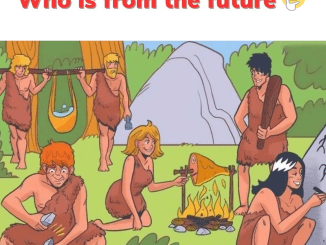Tipping has long been a topic of heated discussion in the United States. While many view it as a way to show appreciation for good service, others believe it’s an outdated practice that unfairly shifts the burden of fair wages onto customers. A recent viral video has reignited this debate, as it shows a bar manager allegedly refusing to let a group of customers leave until they tipped their server. The incident, shared widely on social media, has left people divided, with strong opinions on both sides.
The Viral Video That Sparked the Controversy

A TikTok video shared by user Gladys Nicole (@gladys_nicole) has taken social media by storm, amassing over 2.2 million views. The video captures a bar manager confronting a group of young men who reportedly spent hours drinking and playing pool without tipping their waitress. According to Nicole’s caption, the manager made sure the group paid a tip before they were allowed to leave.
In the video, the manager can be seen explaining the concept of tipping to the group, stating, “In English, it’s tipping. In Spanish, it’s… so let’s say you get cerveza, you pay for pool. Don’t forget her, you gotta give her a little bit. Comprende?” He then emphasizes the importance of tipping by pointing out that their current tip amount was zero, urging them to give the server some money.
Mixed Reactions: Support for the Manager
The video’s portrayal of the manager’s actions has garnered both praise and criticism. Some viewers applauded the manager for standing up for the server, particularly in an industry where tips are a significant portion of income. Many in the comments section expressed their support for the manager’s insistence that the customers tip, seeing it as a way to ensure that the waitress received fair compensation for her time and service.
Comments like “Badass manager” and “He did the right thing” were common among supporters. These individuals argue that while tipping may be legally voluntary, it’s also an unspoken social contract—especially in a country where servers often rely on tips to make a livable wage.
The Backlash: Criticism of Tipping Culture
@gladys_nicole A group of men not tipping the waitrss after HOURS of beer and pool table time. Restaurant manager MADE SURE she was paid! 🤑 #awesome #superbosses #server #serverproblems #serverlife #servertiktok #resturantlife #Dallas ♬ Little Life – Cordelia
On the other hand, the video also sparked outrage among those who believe that tipping culture is inherently flawed. Critics argue that it’s the responsibility of employers, not customers, to ensure that workers are paid a fair wage. This group sees the manager’s actions as problematic, with some even labeling it as coercion or intimidation.
One commenter wrote, “Tipping is not mandatory!! The way people come after you is ridiculous!!!!” Another added, “I would’ve left nothing after that, and explained how the owner should pay their salary, not the customer.”

The backlash didn’t stop at TikTok. The video made its way to the “EndTipping” Reddit page, where users continued to criticize the manager’s behavior. Many argued that the real issue lies with the systemic reliance on tips to supplement inadequate wages. “Whole thing is backwards. The customers should’ve berated the manager until the worker was paid enough they didn’t need a tip,” one Reddit user commented.
The Bigger Picture: Tipping in the U.S.

The incident highlights the broader conversation around tipping in the United States. Unlike in many other countries where service charges are included in the bill, tipping in the U.S. is often seen as a way to directly reward service staff. However, this practice has its roots in a system where servers are paid below minimum wage, with the expectation that tips will make up the difference.
This system has led to significant debate over whether tipping should continue to be a standard practice. Proponents of tipping argue that it incentivizes good service and allows customers to have control over how much they reward their server. Critics, however, believe that tipping is a band-aid solution to the larger issue of wage inequality in the service industry.
Tipping: A Social Obligation or a Personal Choice?

The viral video has brought the question of tipping back into the spotlight: Is tipping a social obligation or a personal choice? For some, the expectation to tip is deeply ingrained, especially in environments where service is provided. For others, the idea of being pressured to tip—especially in a scenario like the one depicted in the video—feels unfair and coercive.
The debate is complicated by the fact that in many cases, servers genuinely depend on tips to make ends meet. The U.S. Department of Labor allows employers to pay tipped workers as little as $2.13 per hour, as long as their tips bring them up to the federal minimum wage of $7.25. This creates a situation where servers may earn far less than their peers in other industries unless customers choose to tip generously.
What Does the Future Hold for Tipping?

As discussions around fair wages and workers’ rights continue to evolve, the future of tipping in the U.S. remains uncertain. Some cities and states have begun to push for higher minimum wages for all workers, regardless of tips, while others continue to rely on the traditional tipping model.
The incident captured in the viral video is just one of many that illustrate the tensions surrounding tipping culture. Whether you believe that the manager was right to insist on a tip or that tipping should be left entirely to the discretion of the customer, the conversation is far from over.
Conclusion
The viral video of a bar manager allegedly refusing to let customers leave without tipping has sparked a wide-ranging debate on tipping culture in the U.S. While some praise the manager for advocating for the server, others criticize the practice of tipping altogether, arguing that it perpetuates wage inequality. As the discussion continues, it’s clear that tipping remains a contentious issue, with strong opinions on both sides. Whether tipping is seen as a social obligation or a personal choice, the debate will likely continue as more people question the fairness and sustainability of this long-standing practice.


